Russia on the brink of revolution as violent riots explode across the country
Vladimir Putin’s grip on power could be failing, with Russia on the brink of revolution as protesters clash with riot police in the streets.
Corruption. Control. Incompetence. Russia’s people have had enough. And a poisoning survivor is riding this wave of resentment in open defiance of Vladimir Putin’s draconian rule.
The triumphant return of opposition figurehead Alexei Navalny has spooked the Kremlin.
Is this 1917 all over again?
The anger is real. Chants of “Putin is a thief” and “Free Navalny!” fill the streets.
The anger is widespread. Demonstrations have flared from Vladivostok in the east to Kaliningrad in the west.
But the response has been brutal. Baton-wielding police have held nothing back.
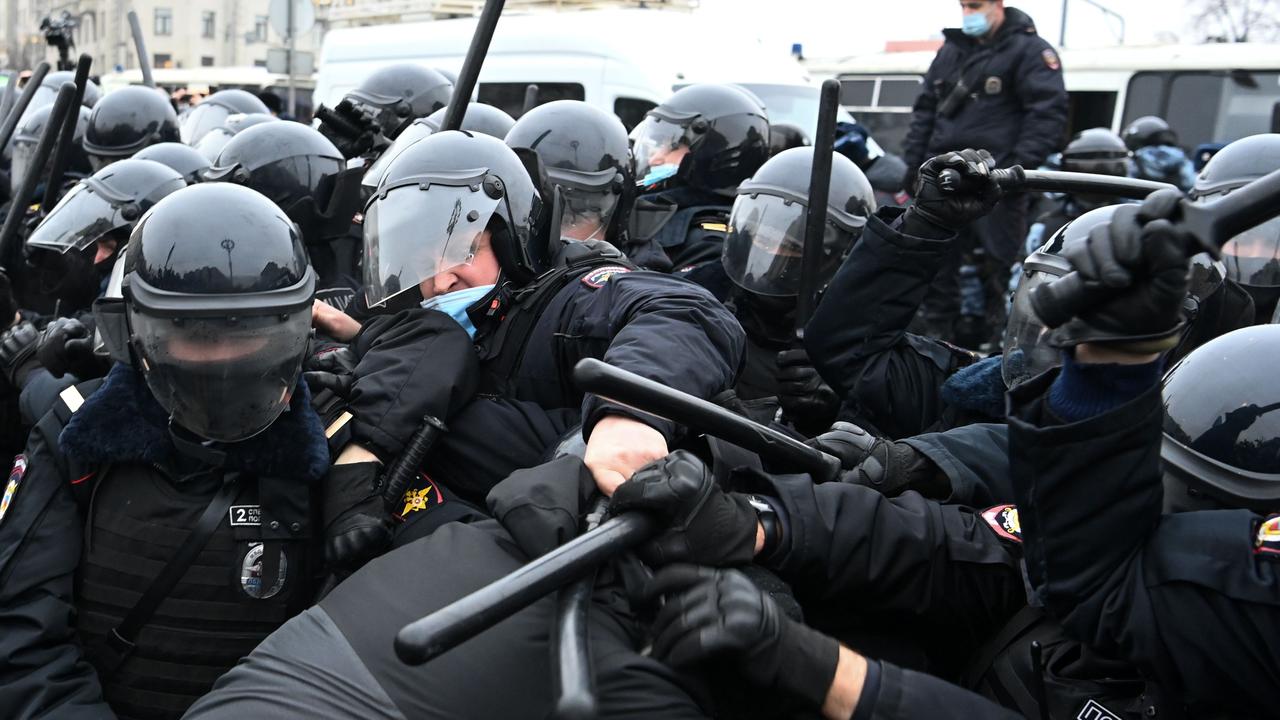
So far, they’ve had little impact. Plans for protests continue to swirl through social media.
It’s the result of an upwelling of resentment at the lavish lifestyles of Russia’s oligarchs.
It’s an expression of anger at widespread unemployment and economic hardship.
It’s not going away any time soon.
And President Vladimir Putin appears rattled.
REVOLUTIONS COME AROUND
He’s been beaten. He’s been detained. He’s been defamed. He’s being compared to Vladimir Lenin. But, now, after surviving an assassination attempt, Russia’s de facto opposition leader Alexei Navalny has become the figurehead of a people-power movement.
Mr Navalny was sent straight to prison upon his return to Russia after five-months of lifesaving treatment in Germany. His charge: missing parole conditions while he was recovering.
It sparked uproar.
It seems this time, Mr Putin has been too clever for his own good.
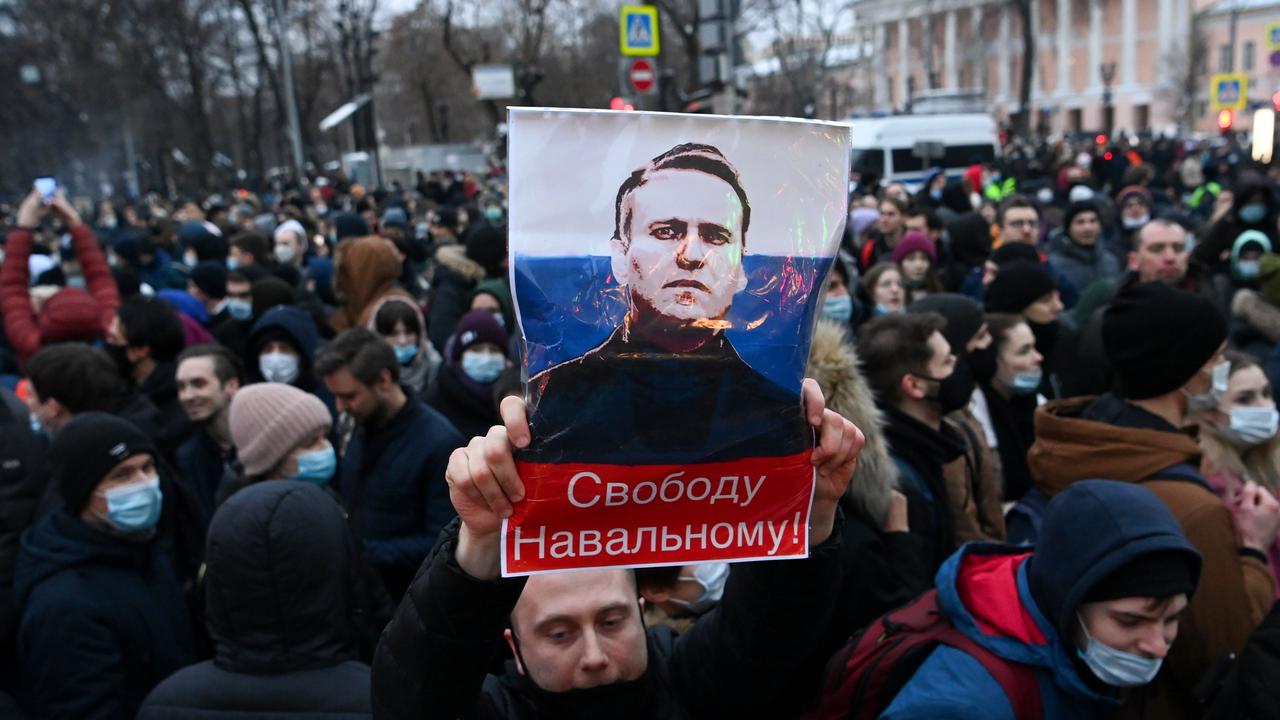
“The authorities made two critical mistakes – the poisoning of Navalny and his arrest. Although there would have been no arrest without poisoning,” says Russian political analyst Tatyana Stanovaya.
The use of the secret Russian-developed Novichok nerve-agent was supposed to send a signal.
Behind his smirking denials, Mr Putin wants the world to know he can reach deep into the heart of sovereign democracies to attack his detractors. Nowhere is safe. Nobody is safe.
But it backfired.
“The results of many, many years of the Kremlin’s scrupulous work to squeeze out the real opposition into the (sidelines) today are solemnly buried in one day,” states Stanovaya.
Mr Navalny is now enjoying broader and stronger support than ever before.
Mr Putin’s brutal attacks on detractors – at home and abroad – has served to invigorate the dispossessed. His subjects have taken it as confirmation that their “strongman” leader is just another corrupt dictator. Add to the mix fresh claims that Mr Putin luxuriates in a private secret palace as they suffer, and you have crowds surging into the streets.
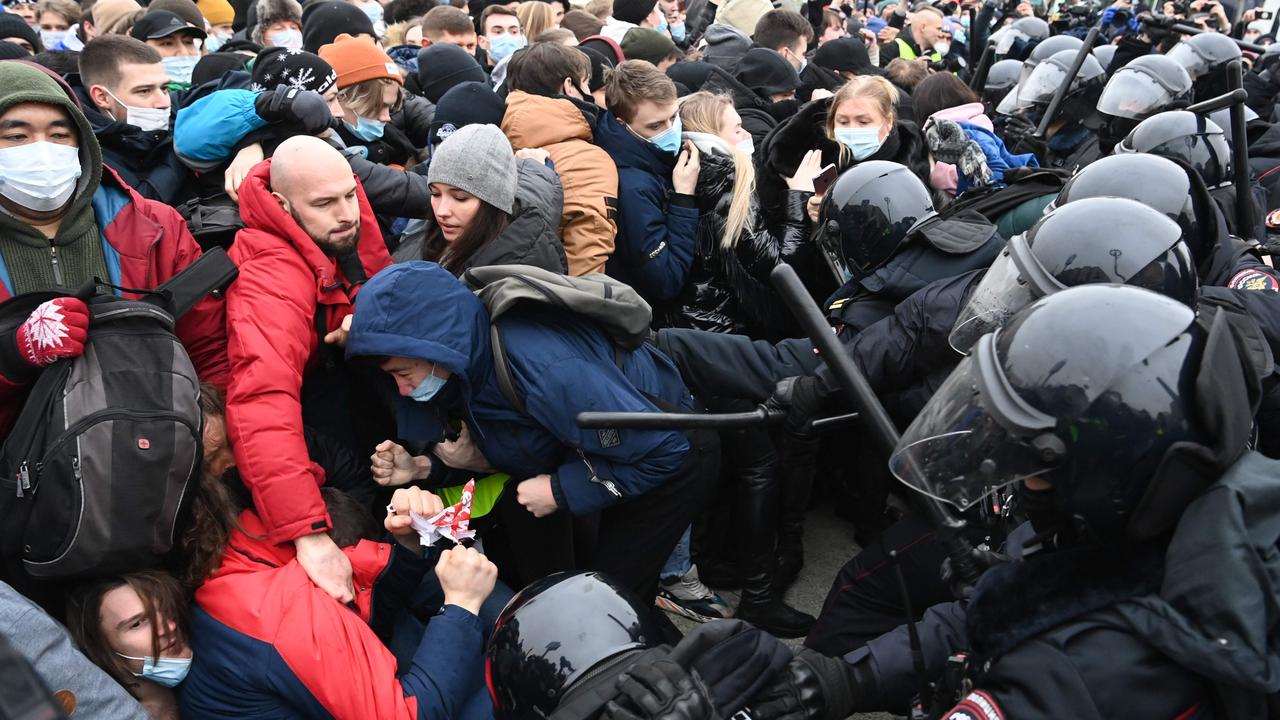
The Kremlin’s response has been vicious.
“I think they’re really rattled,” says senior lecturer in politics at Manchester Metropolitan University Eleanor Bindman.
“Navalny has played it really well … despite the fact he’s been detained.”
POWER CORRUPTS
Its decor is fit for a king. Its walls are festooned with gold-leaf filigree. Fine ornamental furniture fills its halls. There’s a command bunker. And a private strip-club. Its toilet brushes are supposed to be worth $A1000 each.
Putin says the $A1.7 billion property isn’t his.
But his links to an enormous Black Sea estate are undeniable.
“Russia sells huge amounts of oil, gas, metals, fertiliser, and timber – but people’s incomes keep falling and falling because Putin has his palace,” Navalny declares in an almost two-hour-long YouTube diatribe.
In it, he recounts decades of allegations and evidence that Mr Putin has corrupted Russia’s nascent democracy into a kleptocracy – a nation run by thieves.
He’s been in power for more than 20 years.
Last year, he put aside constitutional constraints limiting his term in office.
He’s now able to contest elections in 2024 and 2030.
Not that those elections mean much. In 2018, Mr Putin’s regime claimed an improbable 77 per cent of the popular vote.
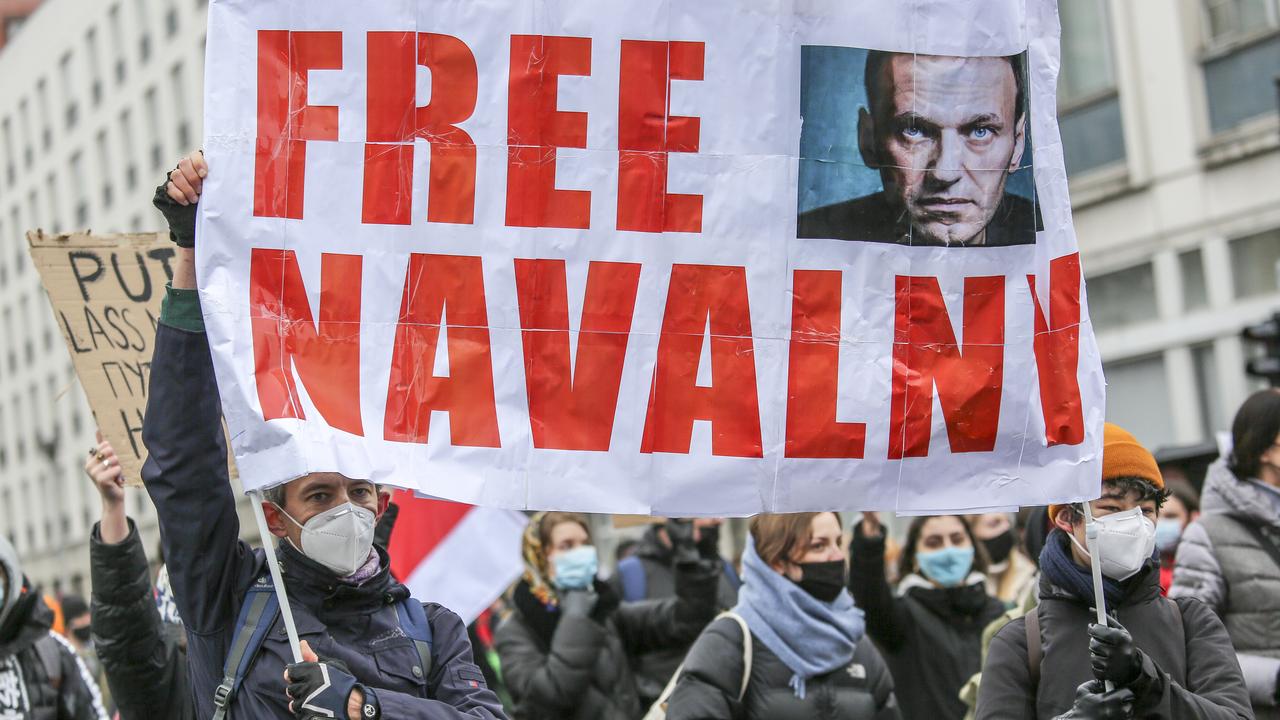
“Russian elections are now state-directed performances that eliminate opposition,” political science professors Regina Smyth and Sarah Oates state. “Random targeted arrests and violence – especially against those who try to lead alternative political movements – are common.”
But corruption weakens political immune systems.
Like Lenin before him, Mr Navalny is a “plague bacillus” eating away the heart of Putin’s empire.
Winston Churchill wrote that, in April 1917, a train out of Switzerland “turned upon Russia the most grisly of all weapons. They transported Lenin in a sealed truck like a plague bacillus from Switzerland to Russia”.
By October, he had sparked a revolution.
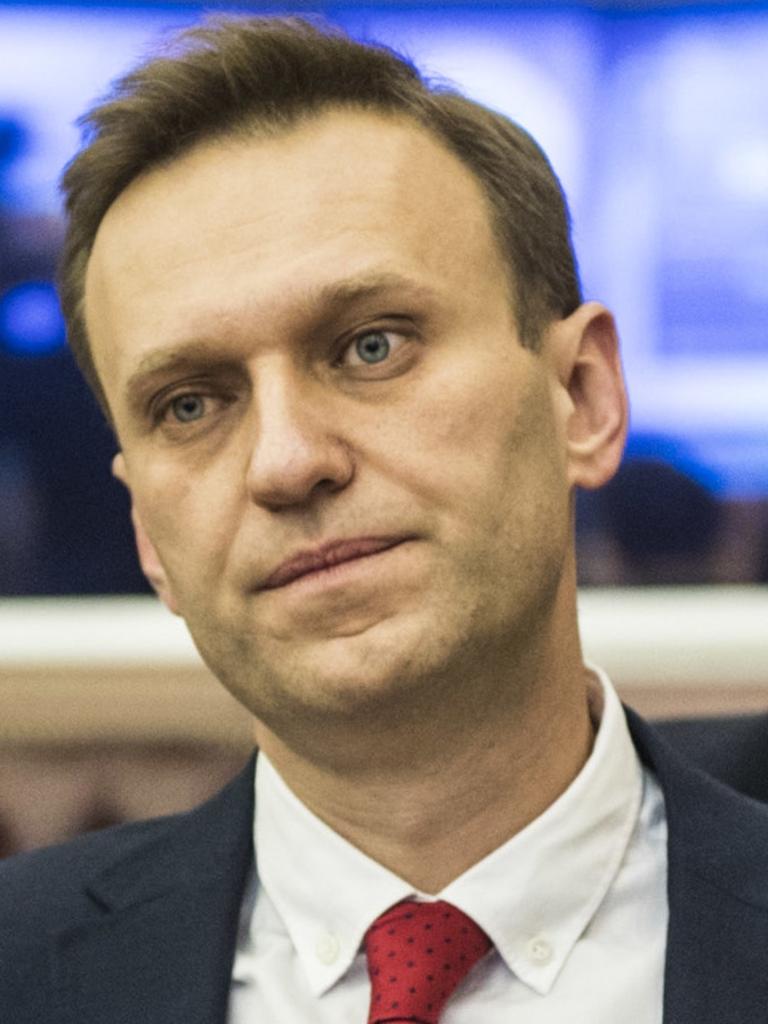
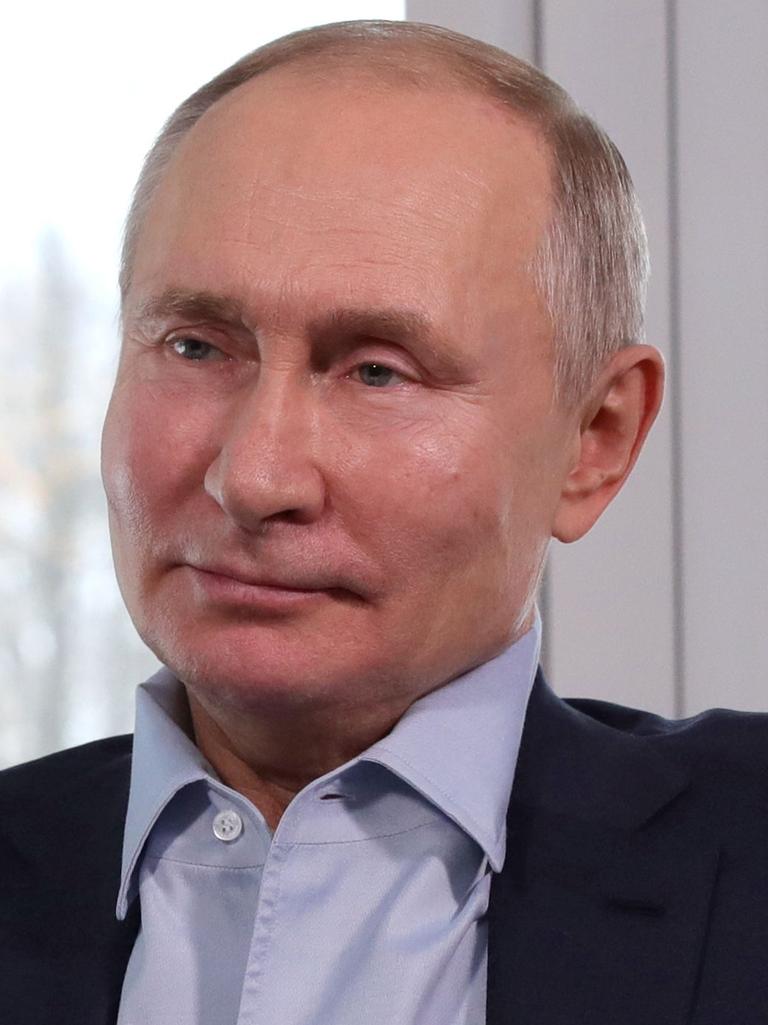
“Is this something that Navalny had in mind when making what appears to be a foolhardy return to his home country,” asks international politics analyst Liana Semchuk, “bearing in mind that he was poisoned with a nerve agent the last time he was on Russian soil?”.
VIOLENT UPRISING
It’s winter in Russia. And the COVID-19 pandemic there is out of control. But, in more than 60 cities, droves swarmed out into the streets to express their discontent. Predictably, police reacted with force.
You wouldn’t know this even happened if you watched state-controlled TV. But, if Mr Navalny has his way, it’s only the beginning.
He returned to Russia knowing full well that he would be arrested.
He wasn’t the only one.
Five key members of his Anti-Corruption Foundation also have been detained. On Friday, police seized his press secretary Kira Yarmysh for inciting demonstrations over social media.
ÐреÑтовали на 9 Ñуток.
— Кира Ярмыш (@Kira_Yarmysh) January 22, 2021
Ðу, вы знаете, что делать. 23 ÑÐ½Ð²Ð°Ñ€Ñ 14.00, центральные улицы ваших городов. Приходите!
She had called for peaceful protests, emphasising the need for Russia’s downtrodden population to take back control. “(It’s) everyone’s duty, if we want prosperity, freedom and the wellbeing of our country. And so that Alexei and all those illegally behind bars are set free.”
Some 3400 people were bundled into the backs of police vans at the weekend demonstrations. Among them was Mr Navalny’s wife, Yulia Navalnaya.
But the protests are not just about Mr Navalny.
Pensions have been cut. Retirement ages have been raised. Unemployment remains stubbornly high. And Russia’s economic outlook remains grim – mainly due to strict international sanctions against Mr Putin and his billionaire backers.
Meanwhile, Moscow has moved to quell further protests by clamping down social media sites.
They must remove any calls for demonstrations, and all demands for Mr Navalny’s release.
So far, TikTok, Facebook’s Instagram and Russian-based services have been compliant.
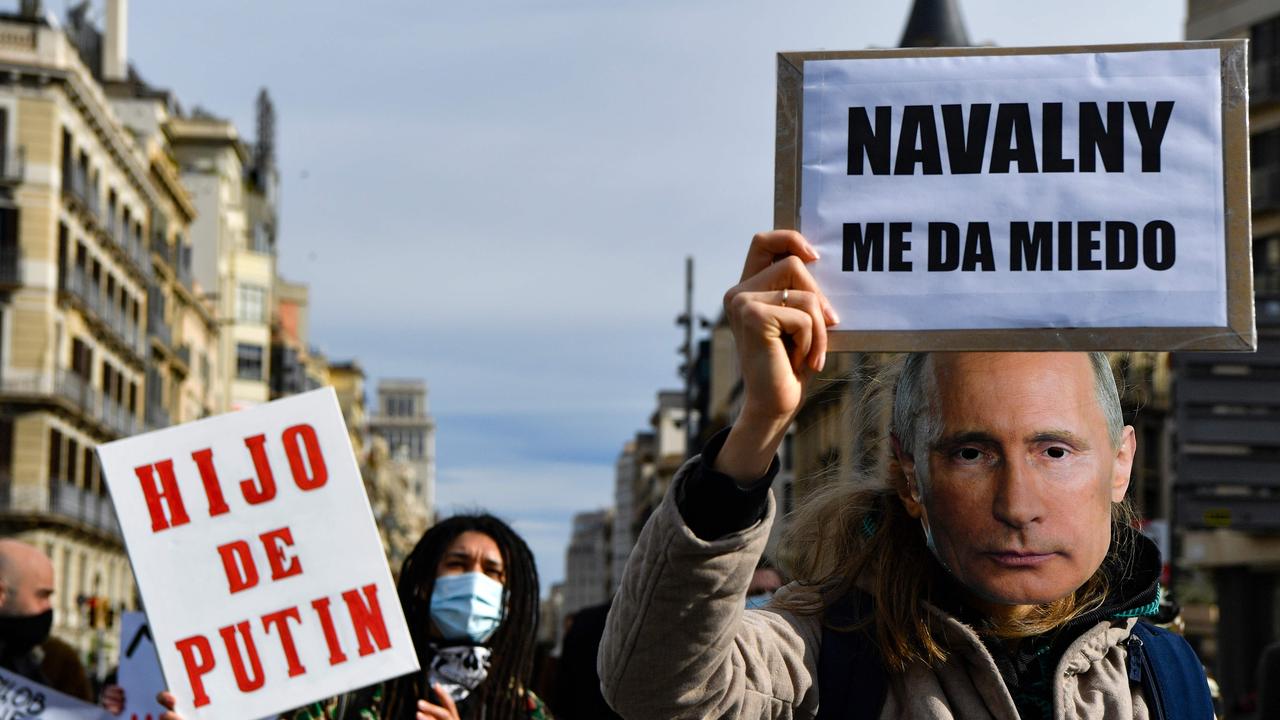
COUNTER-ATTACK
Pro-Putin media has revived a long-held strategy to discredit opposition movements: “Won’t somebody think of the children!”
“It’s not their own kids that they’re bringing out,” the state-run RT channel declared during a rare mention of the weekend’s demonstrations. “Navalny’s kids aren’t even in Russia!”
It accused Mr Navalny’s followers of “brainwashing” Russia’s youth. But social media footage doesn’t reveal any significant juvenile participation in the crowds.
Anti-Putin sentiment remains strong. And growing.
So an increasingly rattled Moscow may seek more extreme measures to quell the uprising.
In an apparent attempt to head-off a potential Putin move, Mr Navalny posted a message to Instagram on Friday.
It appears to be an apparent attempt to head off a possible Putin move: “It is not my plan to hang myself on a window bar, or to open my veins or throat with a sharpened spoon.”
Meanwhile, Moscow seems set to continue its attempts to crush dissent brutally.
The fate of Russian student blogger Yegor Zhukov seems set to become a familiar story.
He dared to criticise Mr Putin. He dared to highlight corruption.
In response, Moscow had him assaulted outside his own home, arrested and convicted of extremism.
But President Putin has been covering his options.
Last year, Russia’s parliament passed legislation giving him – and his family – lifetime immunity from criminal prosecution.
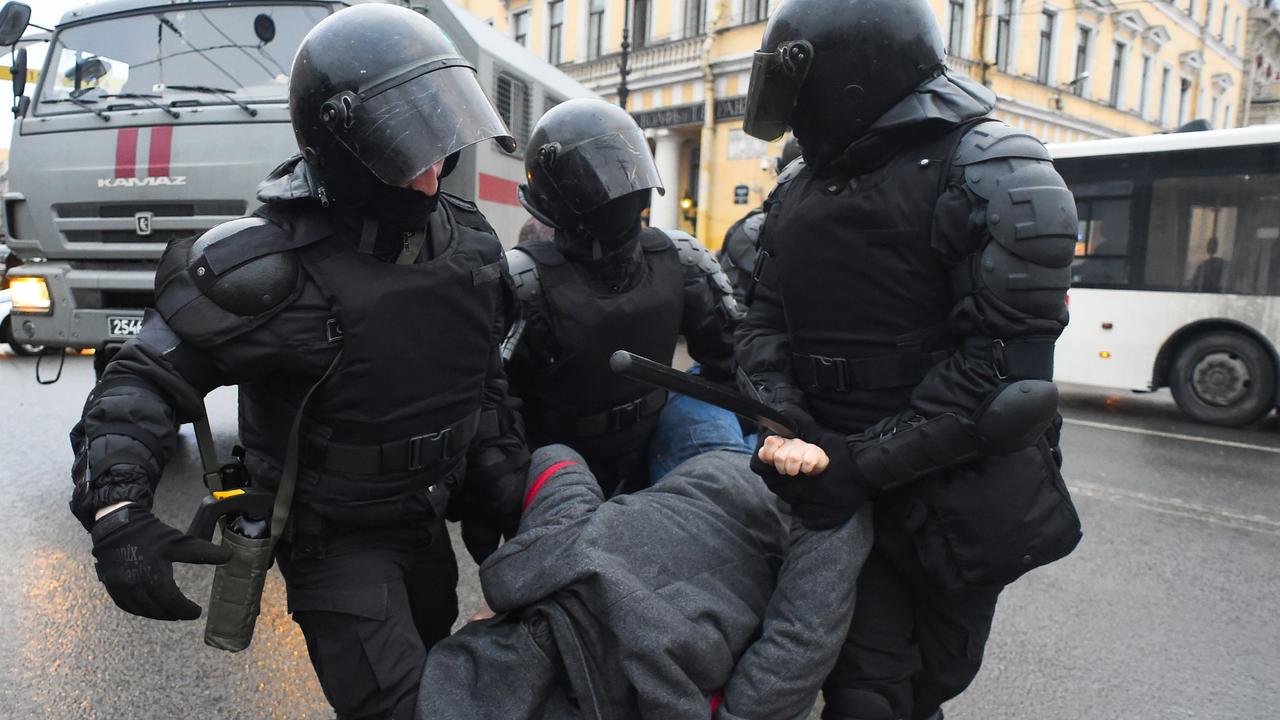
TSAR PUTIN?
“Health rumours aside, it is unlikely that Putin is in a hurry to step down before 2024,” observes Semchuk. Instead, he may be deliberately sowing seeds of confusion about his ultimate plans.
“Kremlin watchers also point out that it’s far from clear who might be being groomed to succeed Putin – Russia’s longest-serving leader since Joseph Stalin,” she adds.
Mr Putin will be 84 if he stays in office until 2036, as Russia’s constantly-amended constitution currently allows.
But he’s making sure he remains an untouchable figure, whatever the future holds.
Last year’s constitutional change means Mr Putin “cannot be brought to criminal or administrative responsibility, as well as detained, arrested, subjected to a search, interrogation or body search”. “The ex-president’s immunity extends to the residential and office premises he occupies, his vehicles, communications, documents and luggage belonging to him,” it adds.
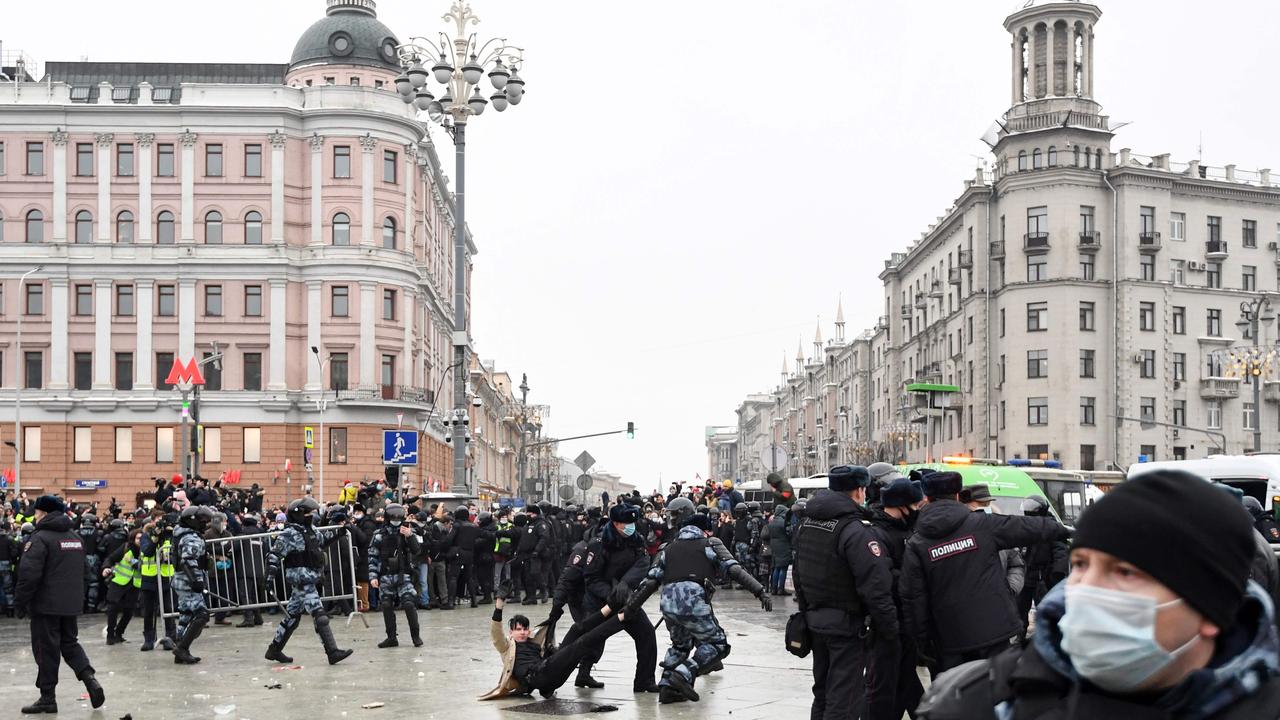
Another proposal before the house wants Mr Putin awarded a “lifetime seat as a senator”. Such a position also would give him perpetual legal immunity.
Mr Putin has himself said his reign “must definitely end one day”.
“As to what will happen in 2024 or later – we will see when the time comes.”
That future is now in flux.
Mr Navalny’s popularity is surging. His movement is gaining momentum.
History tells us that – no matter how much power a tyrant wields – it’s the voice of their people that has the final say.
Semchuk sums the situation up: “The big question being asked around the world is whether the opposition figurehead, for now in police custody, can – like Lenin in 1917 – galvanise events as a catalyst for change?”.




